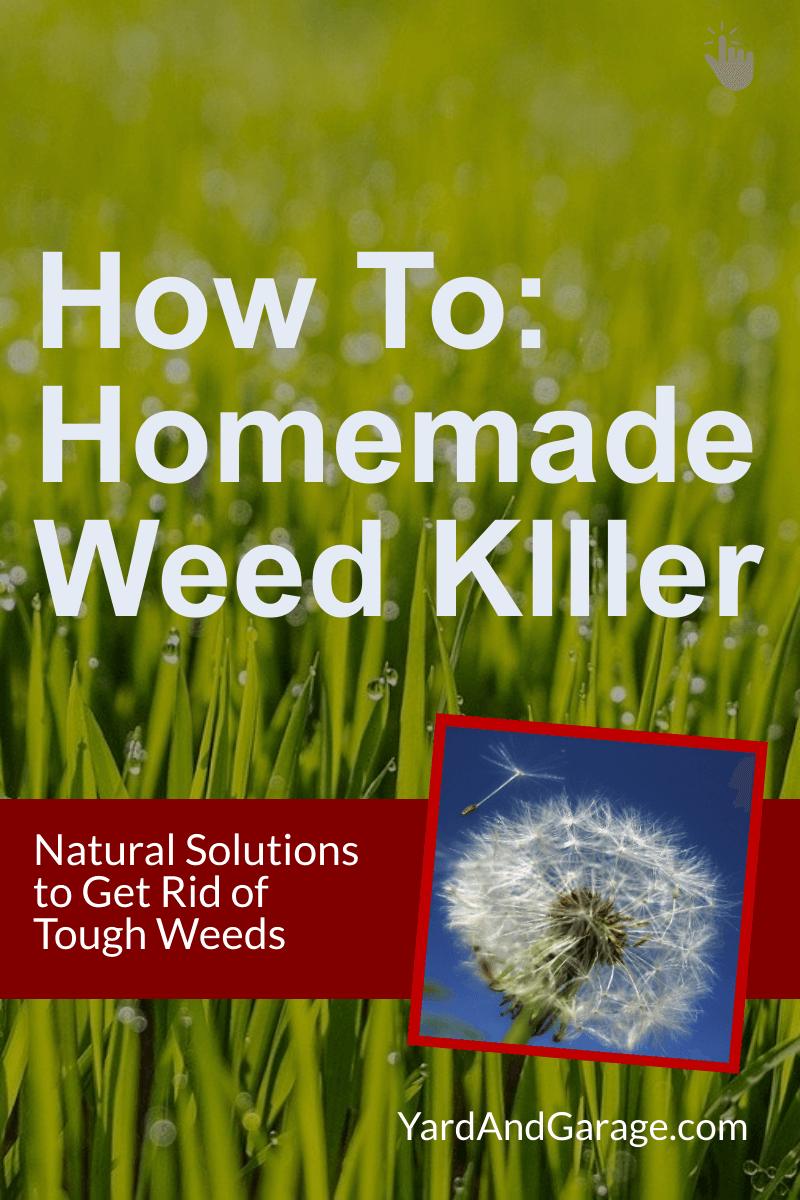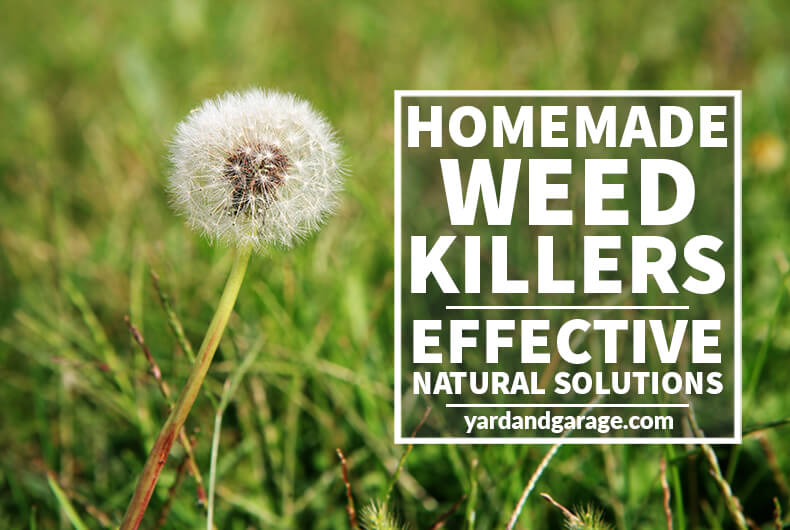 Looking for an easy, natural way to cut back on the weeds in your lawn and garden beds?
Looking for an easy, natural way to cut back on the weeds in your lawn and garden beds?
There were weed killers around before Round-Up was invented.
Here are some natural DIY solutions for weed control I have used to keep my yard (almost) weed-free.
How Weed Killers Work
Before we jump into the killing, let’s try to understand how the weed killers actually work to control weeds.
Pre-Emergent Herbicides
Pre-emergents herbicides prevent new seedlings from sprouting. The corn gluten (or cornmeal) mentioned below leaves a chemical barrier on the soil surface that interferes with sprouting seedlings. They won’t help you right now, but can help control the weed population later.
Systemic Herbicides
These herbicides work by being absorbed by a growing plant leaf. The chemicals travel down throughout the plant to the stems and roots. They interfere with the weed’s ability to make food, preventing growth. These can lead to the death of the whole plant.
Contact Weed Killers
Contact weed killers work by, you guessed it, contacting the plant’s surface. They are usually faster acting than systemic herbicides and can show results in hours. The roots of plants hit with this weed killer will continue to live on. This can work on weeds that spread via seeds, but not any that have runners.
Homemade Weed Killers – DIY Care for Your Lawn
Most of the weed killers below you will already have in your house. You can be outside slaying the garden invaders today.
Lemon Juice
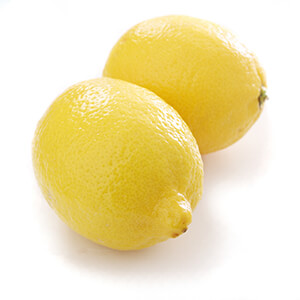
If you have ever grown vegetables, you know some varieties need soil pH to be a perfect level. That’s where our first weed killer, lemon juice, comes in.
Being acidic, it will make the plant’s environment inhospitable. Sprayed plants should wilt down with a couple of days.
As a side benefit, your garden will smell like pledge and you will drive away a few mosquitoes.
A drawback of lemon juice is that it is more expensive than other methods.
Vinegar
Vinegar has a similar pH value to lemon juice but is a heck of a lot cheaper. It’s around $3-$4 for a gallon for 5%. More potent formulas are on the market, but a good coating of everyday food grade should do the trick.
You can easily whip up a vinegar-based weed killer. You just need to simply mix white vinegar along with a few drops of dishwashing liquid and transfer the solution to a spray bottle. Spray the mixture directly onto the weeds, targeting their leaves and stems.
Be sure to coat the offending plant well, and it will start withering in a day or two.
Boiling Water
Pouring boiling water over weeds will kill off everything above ground. Results can be mixed for any deep rooted plants.
One great benefit of using water as a weed killer is there is no increase of chemicals in the soil after you are done.
This method works best for small weedy areas. And of course, this is also the cheapest method. Just don’t wear flip-flops like this guy.
Corn Gluten
Corn gluten, as mentioned above, is a pre-emergent herbicide. Corn is a greedy plant and releases a chemical that inhibits the growth of other plants around it. Black walnuts are notorious for doing this as well.
It will only work on weeds spread by seeds, not perennials that come up from existing roots.
For corn gluten to work, there are a couple of things you need to keep in mind.
- Application Rate: For 60% protein corn gluten meal, anything less than 20 lbs per 1000 square feet will just be a fertilizer for your lawn. If you purchased 20% protein meal, you will need to apply at a rate of 60 lbs per 1000 square feet.
- Timing: You need to apply this in early spring before the weed seeds start germinating. If weeds are already growing, its too late.
- Moisture: If you aren’t getting any rain, you will need to run your sprinklers to make it spread.
Other weed suppression methods
Flame Weeding
This method is used in agriculture. As you would expect, holding a propane torch next to a plant will kill it. However, I find it has limited applications to weeds growing in cracks of driveways or walkways for residential use.
If you want to be like Tim from Tool Time, Harbor Freight sells one you hook up to a normal propane tank.
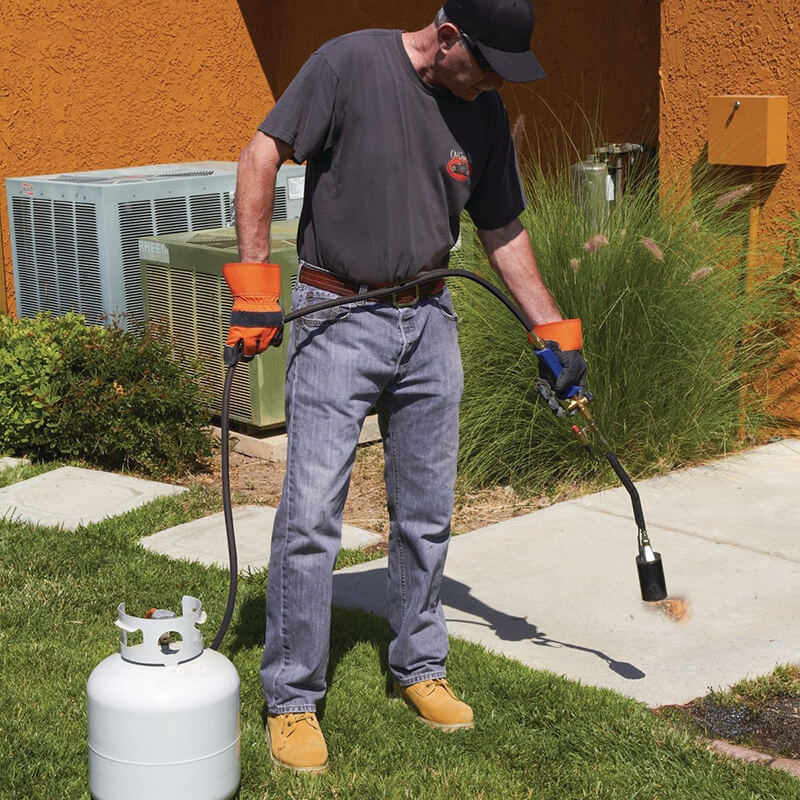
Manual Weed Extract (aka Pulling Weeds)
If you’re low on cash, this is even cheaper than the boiling water option above.
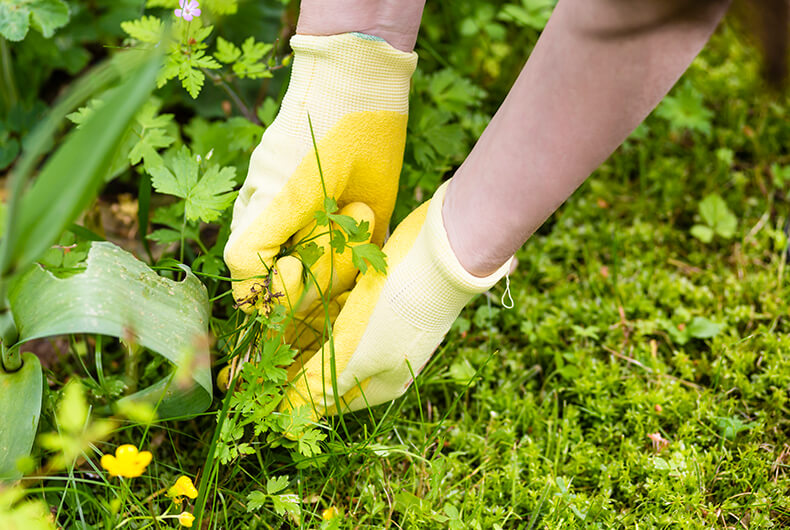
Time and good knees are all you need to save your garden.
But for this to be truly effective, you need to make sure you get the roots as well.
Mulches and Ground Covers
Weeds need sunlight and warmth to grow, and mulch and other ground covers deprive them of both. You’ll need to spread your mulch at a depth of at least 2-3 inches to suffocate those dastardly weeds.
Let Grass Grow Taller
Cutting your grass down to the nibs just creates a perfect environment for weeds. Instead, raise your mower blades to at least 2 inches so that your grass can grow tall and proud. Not only will your yard look lush, you’ll be helping to stop the weeds in their tracks.
Edging
You can keep weeds from gaining a foothold in your garden with edging. Putting up a border between your lawn and the flower beds keeps grass out and weeds by extension.
Cut the Weeds Before They Go to Seed
Weeds have seeds, and regular lawn maintenance is crucial to remove any weeds that sprout up. Removing the weeds before their seeds can spread and sprout is half the battle.
Not exactly natural methods
Rubbing Alcohol
Another handy household item is isopropyl rubbing alcohol.
Add about two teaspoons of rubbing alcohol into a spray bottle, and you’ve got a handy, portable spray that kills weeds.
Get the weeds wet but don’t over saturate.
Salt
If you want to go total Armageddon, you can break out a saltwater solution of 1 cup salt for every 2 cups of water.
But remember, salt works by starving the plants of water. All plants – not just weeds.
So use it as a last resort and only if you’re not planning on growing anything there later.
Share this Post on Pinterest!
